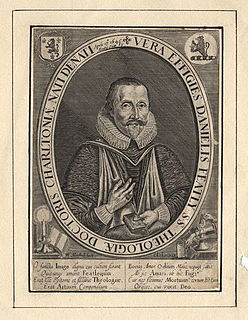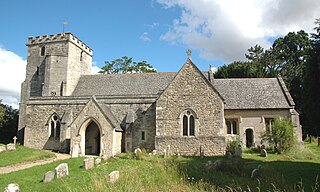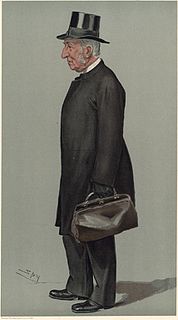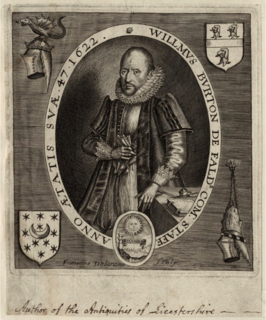Related Research Articles

Henry Hammond was an English churchman, who supported the Royalist cause during the English Civil War.

John Greaves was an English mathematician, astronomer and antiquarian.
Llewellyn John MontfortBebb was a British academic.

Daniel Featley, also called Fairclough and sometimes called Richard Fairclough/Featley, was an English theologian and controversialist. A leading Calvinist disputant of the 1620s, he fell into difficulties with Parliament due to his loyalty to Charles I in the 1640s, and he was harshly treated and imprisoned at the end of his life.

John Wordsworth, FBA (1843–1911) was an English prelate and classical scholar. He was Oriel Professor of the Interpretation of Holy Scripture at the University of Oxford from 1883 to 1885, and Bishop of Salisbury from 1885 to 1911.

Horspath is a village and civil parish in South Oxfordshire about 3.5 miles (5.6 km) east of the centre of Oxford, England. The 2011 Census recorded the parish's population as 1,378.

Sir Thomas Aston, 1st Baronet was an English politician who sat in the House of Commons in 1640. He fought for the Royalist cause in the English Civil War.

Sir Wadham Wyndham, of Ilton, Somerset and St. Edmund’s College, Salisbury, was a Justice of the King's Bench from 1660 to 1668.
William Hulme was a 17th-century lawyer and landowner from Lancashire, and the founder of Hulme's Charity.
Roger John Cashmore is the Chair of the United Kingdom Atomic Energy Authority. Previously he was Principal of Brasenose College, Oxford and Professor of Experimental Physics at the University of Oxford. His interests include the origin of the masses of particles and the Higgs boson.

James John Hornby CVO was an English rower and headmaster of Eton College from 1868 to 1884.
Francis Mason (c.1566–1621) was an English churchman, archdeacon of Norfolk and author of Of the Consecration of the Bishops in the Church of England (1613), a defence of the Church of England and the first serious rebuttal of the Nag's Head Fable put about as denigration of Matthew Parker and Anglican orders.

Ashurst Turner Gilbert was an English churchman and academic, Principal of Brasenose College, Oxford from 1822 and bishop of Chichester.
Sir John Hawles (1645–1716), of Lincoln's Inn, was an English lawyer and Whig politician who sat in the English and British House of Commons between 1689 and 1710.

William Burton was an English antiquarian, best known as the author of the Description of Leicester Shire (1622), the county's first published county history.
Matthew Griffith was an English clergyman.

Frodsham Hodson (1770–1822) was an English churchman and academic, the Principal of Brasenose College, Oxford from 1809.
The history of Brasenose College, Oxford, stretches back to 1509, when Brasenose College was founded on the site of Brasenose Hall. Its name is believed to derive from the name of a bronze knocker that adorned the hall's door. The college was associated with Lancashire and Cheshire, the county origins of its two founders – Sir Richard Sutton and the Bishop of Lincoln, William Smyth – a link that was maintained strongly until the latter half of the nineteenth century. The first principals navigated Brasenose, with its Catholic sympathisers, through the reformation and continuing religious reforms. Most of Brasenose favoured the Royalist side during the English Civil War, although it produced notable generals and clergy on both sides. The library and chapel were completed in the mid-seventeenth century, despite Brasenose suffering continuing financial problems.
Charles Leslie Dundas was an eminent Anglican priest in the late nineteenth and early twentieth centuries.
Edward Hyde (1607–1659) was an English royalist cleric, nominally Dean of Windsor at the end of his life.
References
![]()